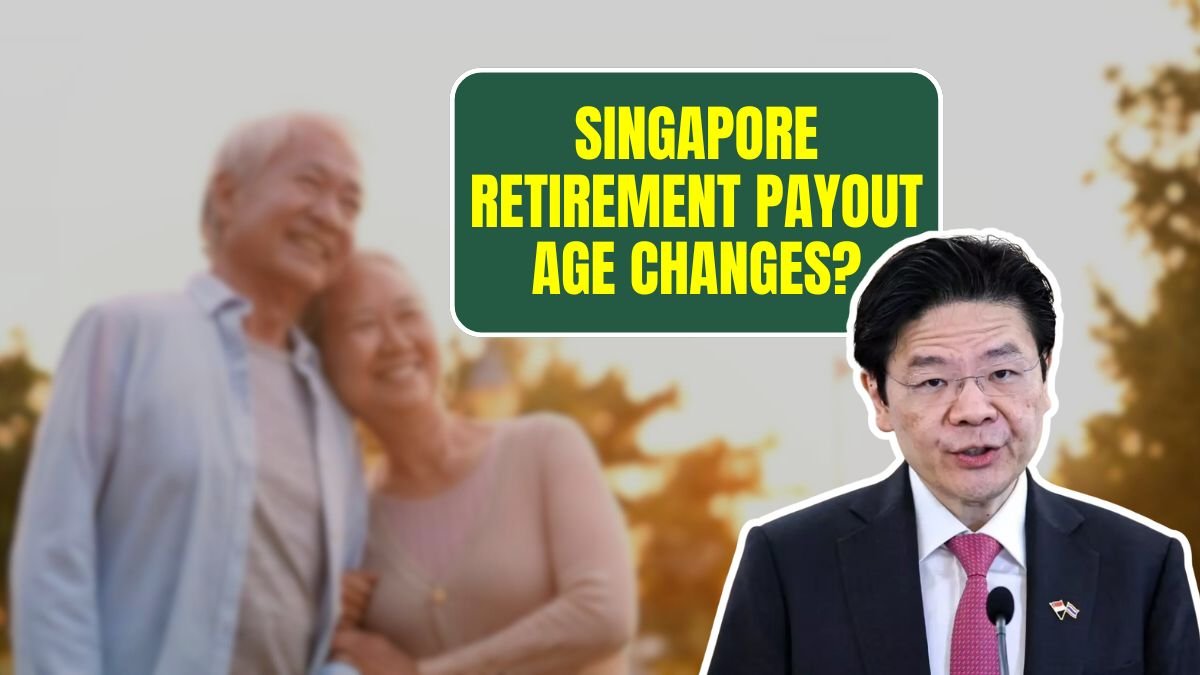In recent days, many misleading posts and videos have been seen on social media claiming that the Singapore government has suddenly increased the minimum age for monthly pension from CPF (Central Provident Fund) to 70 years. This claim is creating anxiety and confusion among many citizens, especially those who are planning their retirement. But the truth is completely different. The government has clearly stated that the eligibility age for CPF pension is still 65 years and you can start pension whenever you want between 65 and 70. It depends on your own choice—not on any government compulsion. The rumors spreading on social media are based on incomplete information or misunderstanding.
Such rumors make it necessary for people to seek information from government sources and inform themselves about the correct facts. The Singapore government takes every decision keeping in mind the safety and dignity of its senior citizens, and the issue of CPF pension is also not untouched by this. Therefore, this article is written with the aim of explaining the important facts to you in detail.
What are the real changes coming?
Now the question arises that if the pension age has not increased, then what is the discussion about? Actually, the Singapore government has decided to gradually increase the retirement and re-employment age. From July 1, 2026, Singapore’s minimum retirement age will increase from 63 to 64 and the re-employment age will increase from 68 to 69 years. This change was announced in 2019 itself and it is being implemented in a phased manner.
The government plans to increase the retirement age to 65 and the re-employment age to 70 by the year 2030. The purpose of this is to give people the option to voluntarily remain employed despite increasing age, especially when they are fit, efficient and want to work. This change is not being implemented suddenly but in a deliberate manner and with time to give both employers and employees ample opportunity to adapt.
Why was there a need to gradually increase the retirement age?
Singapore is a country where life expectancy is increasing, meaning people are living longer than before. In addition, the number of elderly people is also increasing rapidly, making it necessary to extend the working age a little longer. This will not only help individuals remain financially independent for longer, but it will also reduce the financial pressure on the government.
There is also a humanitarian thought behind this strategy—many senior citizens still feel capable and want to continue working. They have experience and can act as a mentor to younger workers. Putting such people out of work is not only a loss to them but also to society. So the government wants to ensure that they can continue working willingly and with dignity.
How will the role of employers and government support be?
As the retirement and re-employment ages increase, the role of employers will become more important. Under the Retirement and Re-employment Act, from 2026, employers will have to offer re-employment up to 69 years, provided the employee is fit to work and his performance is satisfactory.
The government has also expanded schemes such as Senior Employment Credit, which allows employers to get wage subsidies. This initiative brings relief especially to small and medium enterprises that want to retain senior employees but are unable to do so due to financial pressures.
Many public sector ministries and unions have already accepted these new limits. Many government bodies have already set the internal retirement age at 64 and the re-employment age at 69 from January 2025. This indicates that the government is not just making the rules but also setting an example by following them itself.
What will be the personal impact of this for you?
If you are close to 60 years of age, these changes can open doors to new opportunities for you. You can decide whether you want to work or not, keeping in mind your physical condition, mental health and personal goals. The good thing is that no rule forces you but gives you a choice.
At the same time, the flexibility of the CPF pension scheme is still intact. If you want, you can start taking pension at the age of 65. But if you delay it to 70, you will get a higher amount every month. Thus, this scheme gives you both flexibility and freedom.
CPF and your pension—there is no change.
The most important thing during this entire discussion is that there has been no change in the eligibility age for monthly pension from CPF. As before, you can start taking pension at the age of 65.
If you want a higher monthly amount, you can wait to start your pension till the age of 66, 67 or up to 70 years. It is completely based on your planning and financial need. Apart from this, plans like Flexi-MediSave, the Silver Support Scheme, and MediShield Life will continue to help you with health expenses and maintaining quality of life.
Emotional aspect—This change is not just policy; it is also human.
These steps of the government are not just related to law or statistics, but they are related to the life and dignity of every person. Many people consider themselves completely retired at the age of 60 or 65. Some feel that their employees are capable of working for a longer period of time and want to continue contributing to their careers, be a part of the office, teach new people, and stay mentally active themselves.
On the other hand, some feel that they should retire after a certain age. The government respects both views and this reflects Singapore’s balanced policy approach.
The aim of this change is to ensure that no one is forced into retirement unwillingly and that no one who wants to work is stopped due to their age.
Conclusion: It’s your life; the decision should be yours.
Finally, we can say categorically that the Singapore government has absolutely not raised the CPF pension age to 70. The fear and confusion created by rumors and half-information is unfounded. CPF rules remain the same and you can start your pension at your will.
The changes being made by the government to retirement and re-employment age are being made gradually, thoughtfully and with utmost human sensitivity. Use this time—talk to your HR, make your plans, and decide what works best for you.
Retirement can now become not just the end of life, but a new chapter—and the government wants you to write that chapter on your own terms.
FAQs
Q. What is the U‑Save Rebate 2025?
A. It is a government utility rebate scheme in Singapore that provides up to S$760 per household to help offset electricity, water, and gas bills.
Q. Who is eligible for the U‑Save rebate?
A. Singaporean citizens living in HDB flats, listed on the utility account, and not renting out the entire flat are generally eligible.
Q. Is the rebate amount per person or per household?
A. The rebate is given per household, not per person, and varies based on the flat type.
Q. How and when will I receive the rebate?
A. The rebate is automatically credited to your SP Services utility account in April, July, October, and January.
Q. Do I need to apply for the U‑Save rebate?
A. No application is needed. Eligible households will receive it automatically if they meet the criteria.


